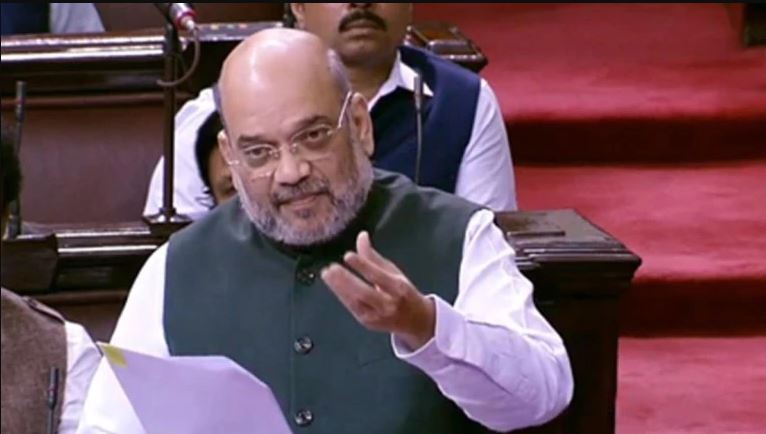It’s been almost three and a half months after the abrogation of Article 370 on August 5, Amit Shah informed the Upper House of the Parliament- Rajya Sabha, that, normalcy has been restored in Jammu & Kashmir. The state has been bifurcated in two Union Territories. Talking about the internet connectivity in the valley, Union Home Minister said that, connectivity will be restored when the local administration believes that it is appropriate to do so.
“People in this House were predicting bloodshed but I am happy to inform that no one has died in police firing. Incidents of stone pelting have declined from 802 last year to 544 so far this year,” said Shah.
Students from all 20,411 schools of the state are appearing for the exams. 99.7 per cent of students in 10th and 12th appeared for the exams.
“Petrol, diesel, kerosene, LPG and rice are adequately available and there has been an 8-16% increase in sales compared to last year. Apple production is expected to be around 22.58 lakh metric tonnes and a large chunk of it has already been moved out,” said Amit Shah in reply to senior Congress leader Ghulam Nabi Azad, who tried to paint a grim picture of the situation on Kashmir in his speech and asked a series of question.
Kashmir’s leadership has gone to local leaders, and they are managing the politics of the region better than the dynastic leaders like Abdullah and Mufti.
With this decision, the 73rd and 74th amendment of constitution would be applicable in Jammu & Kashmir and it would empower the Panchayati Raj institutions. This is essentially the decentralisation of powers which the Modi government at the centre has been talking about.
This time under Modi government, the centre has bypassed dynasties in the Kashmir valley and reached out to the people of Jammu and Kashmir at the grass-root level. Earlier there used to be a cloud of obscurity over the outcome of major welfare decisions undertaken by the centre for J&K. But now, with Jammu & Kashmir under the direct administration of the centre, the Kashmiris are ushering into a new era where they will not remain isolated from these benefit-schemes. Not only that, but the sense of alienation among the people of Kashmir shall also be eliminated by this move, one that has been a first in decades.
Amit Shah also assured the sarpanches that recruitment of locals for government jobs would start soon and that merit-based recruitment for at least five students would be ensured from each village and that the internet and other communication services ban would be lifted in the next 15-20 days.
“Your fight is against terrorism, as is ours. Hence, we should ensure an atmosphere of peace in Jammu and Kashmir at the earliest,” Shah told the elated village heads, who were visibly happy with the announcement.
Amit Shah at the centre has been working closely with the police and army to bring normalcy to the state despite the futile attempts of foreign media and left-liberals who have been trying to paint images of a violence-hit Kashmir.
For decades, Kashmir has had to deal with double-dealers like Mehbooba Mufti and Farooq and Omar Abdullah, who bargained on behalf of J&K with the centre, made thrift profits for themselves and left Kashmiris stranded in the middle. For decades these dynasties have ensured the prevalence of an environment in J&K that is conducive for building personal riches, acting as the only bridges between the Kashmir valley and New Delhi.
However, the August 5th decision has left these political families in tatters and their influence over the region has been reduced next to nil. This move aims to build trust and eliminate the sense of alienation amongst the people of Kashmir for good. The voices in Kashmir that were until now not heard or subverted by the cacophony of separatists and miscreants, shall find a public platform for debate, now that the centre aims to connect with and directly empower the local, grassroots level leaders in J&K.
